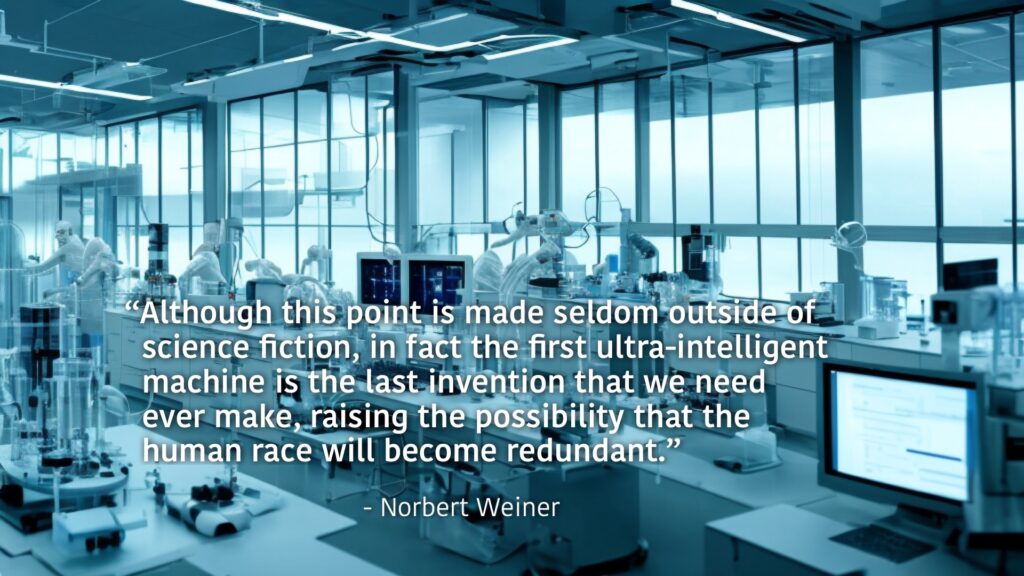
“Evil Geniuses” by Kurt Anderson (Random House, 2020)
“Although this point is made seldom outside of science fiction, in fact the first ultra-intelligent machine is the last invention that we need ever make, raising the possibility that the human race will become redundant.“ – Norbert Weiner
Norbert Weiner’s quote highlights the potential dangers of creating an ultra-intelligent machine without considering its impact on society and the environment. The notion that such a machine could render the human race redundant raises important ethical questions that need to be addressed. The rapid advancement of technology in recent years has already led to significant changes in the labor market, with many jobs becoming automated. However, the creation of an ultra-intelligent machine would likely have far-reaching consequences, such as widespread unemployment and social disruption.
Moreover, there are significant concerns about the potential misuse of such technology, particularly in the context of military applications. The development of autonomous weapons could lead to the loss of human control over decision-making processes, creating unpredictable and potentially catastrophic scenarios.
In light of these concerns, it is essential to consider the ethical implications of developing ultra-intelligent machines and to ensure that any advancements in this field are made with caution and careful consideration. What steps can be taken to mitigate the potential risks associated with creating ultra-intelligent machines?